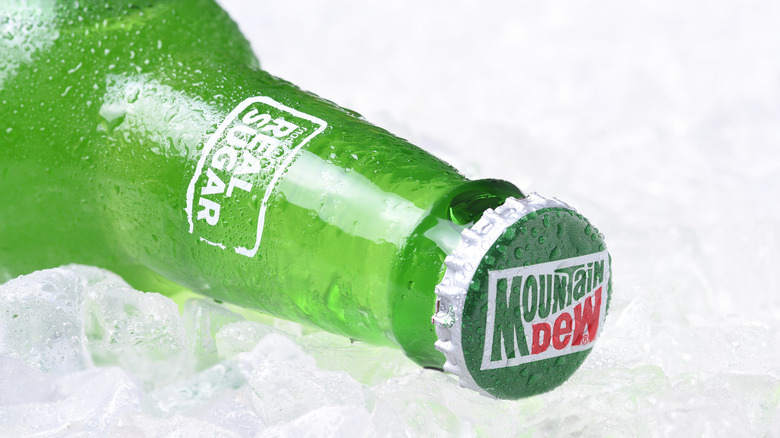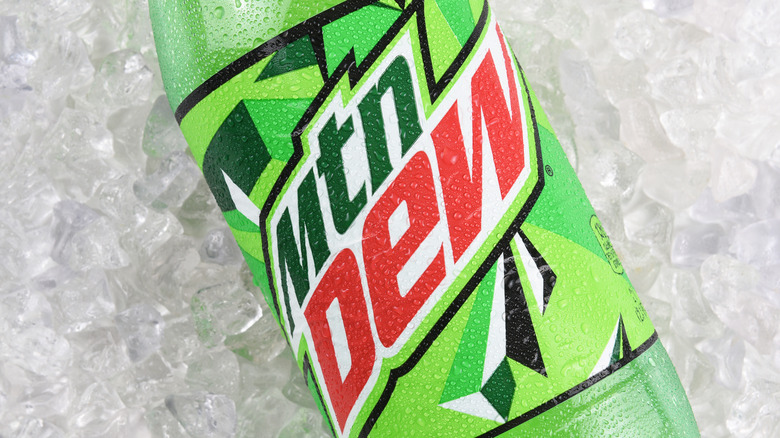Philadelphia Was Introduced To Mountain Dew Through This Bizarre Stunt
America's soda landscape would look much more bare if Mountain Dew never existed. Smithsonian Magazine reports that the drink came into existence thanks to Barney and Ally Hartman, who originally crafted the drink as a chaser for whiskey in 1932. While the soft drink came into existence in the early 30s, most consumers didn't get the chance to pick up a bottle or three of the soda until 1946, per Mentalfloss. That's when the Hartman brothers brought the drink to a soda convention, however, it took until 1951 for the brand to see widespread distribution.
The name Mountain Dew stemmed from a reference to moonshine and the original packaging featured a cartoon hillbilly sporting a rifle as a joke. Most of the country had a hard time accepting Mountain Dew as a soda when it first launched. The original recipe tasted closer to modern Sprite and The Hartman brothers sold the soda brand to The Tip Corporation in 1957. The new owners changed the flavor to resemble a citrus-lemonade and eventually sold the soda off to Pepsi once it got big enough. While America slowly warmed up to the drink, a massive publicity stunt took Philadelphia by storm and helped truly cement Mountain Dew as a leader in the soda industry.
A Mountain Dew publicity stunt that beckoned back to the drink's roots
When Mountain Dew first started hitting the national food market, promoters of the beverage thought up the perfect hoax to get the city of Philadelphia excited for the drink, according to Mentalfloss. One day, the Philadelphia License Commissioner received a request from Herbert Eugene Walton, a self-described hillbilly from Turkeyscratch, Tennessee. The request outlined how Walton wanted to build wooden outhouses in every downtown parking lot. An actor portraying Walton then drove into Philadelphia in a red 1929 Model A loaded to the brink with jugs and distilling gear, causing traffic jams until he reached the city hall.
Upon reaching city hall, the actor then demanded the local government overturn a law banning outhouses, the best place to distill Mountain Dew. From city hall, the actor went to the local IRS branch office and picketed by the location, demanding a tax license to brew Mountain Dew and set up a still. From the still, he handed out Mountain Dew samples to passerbys. Eventually the soda dropped the likeness of the hillbilly selling Mountain Dew, but historians still remember the days when Herbert Eugene Walton caused traffic jams in the name of serving up samples of the iconic soft drink.

